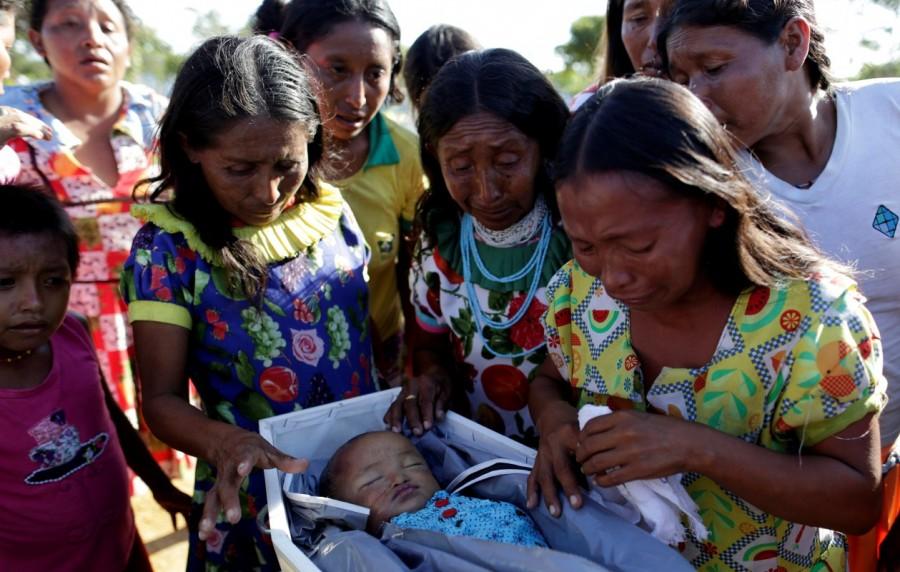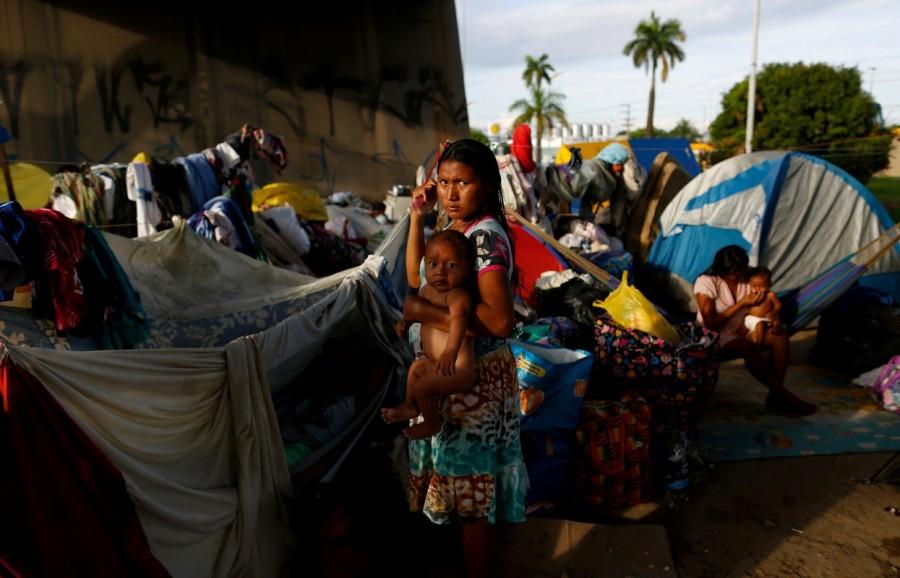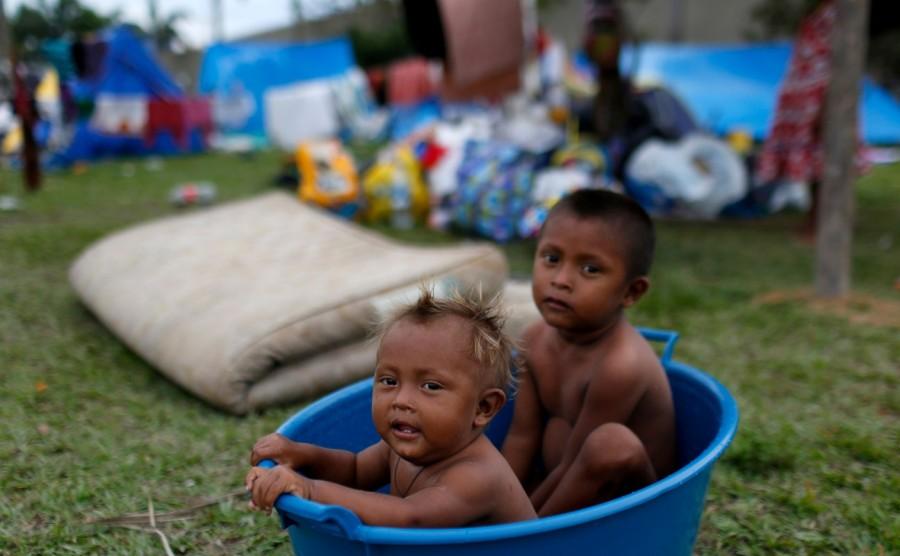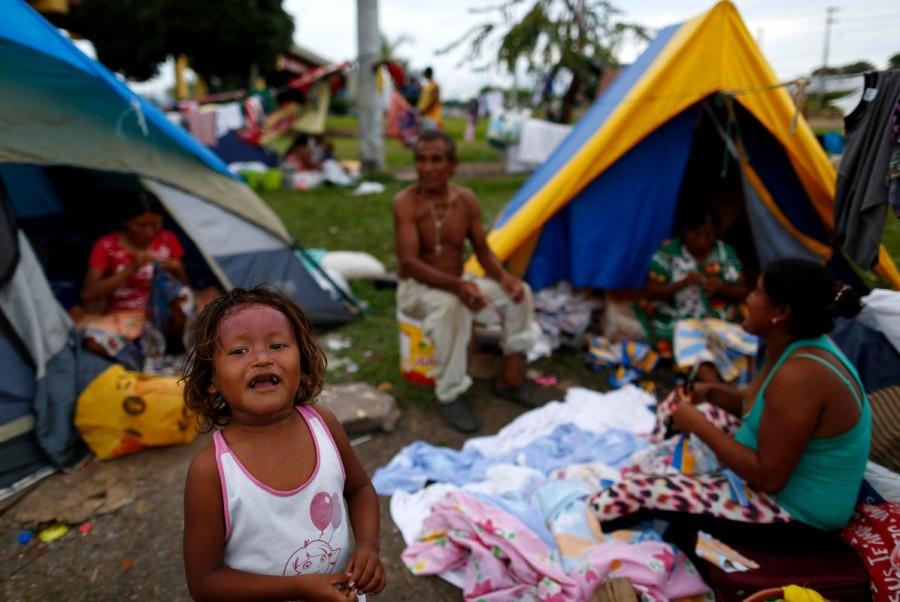1 of 5


A nurse gives a flu vaccine to a baby from the indigenous Warao people from the Orinoco Delta in eastern Venezuela, in Manaus, Brazil. "Everything is gone in Venezuela," said Abel Calderon, a 32-year-old Warao who is acting as spokesman for the impromptu community now living under tarps, tents and other makeshift lodgings around the city, some of them under a highway overpass. "We are here looking for a better life," he added, from underneath a white canvas sheltering him and his young son from the equatorial sun. Calderon says the Warao chose Manaus because it was the closest city in Brazil where they could look for work or assistance from local authorities.
Credit: Reuters
2 of 5


Relatives and friends attend the burial of 11-month-old Fernanda Rattia of the indigenous Warao people from the Orinoco Delta in eastern Venezuela, who died of pneumonia last Sunday, according to local media, in Manaus, Brazil.
Credit: Reuters
Advertisement1
3 of 5
![A mother and her child from the indigenous Warao people from the Orinoco Delta in eastern Venezuela, are seen near a viaduct next to a bus terminal in Manaus, Brazil. Facing hunger and hardship in their villages along Venezuela's Caribbean coast, hundreds of indigenous Warao are now trying their luck on the gritty streets of Manaus, Brazil's Amazonian metropolis. Venezuela,indigenous flee crisis,flee crisis,Caribbean coast,Manaus,Amazonian metropolis]()

A mother and her child from the indigenous Warao people from the Orinoco Delta in eastern Venezuela, are seen near a viaduct next to a bus terminal in Manaus, Brazil. Facing hunger and hardship in their villages along Venezuela's Caribbean coast, hundreds of indigenous Warao are now trying their luck on the gritty streets of Manaus, Brazil's Amazonian metropolis.
Credit: Reuters
4 of 5
![Children from the indigenous Warao people from the Orinoco Delta in eastern Venezuela, are seen in a plastic bucket near a viaduct next to a bus terminal in Manaus, Brazil. Since late last year, then, as many as 355 Warao have made the 1,000 km (620 miles) bus journey from northeastern Venezuela to Manaus, a city of 2 million people where local authorities are now scrambling to help them find shelter, food and medicine. Venezuela,indigenous flee crisis,flee crisis,Caribbean coast,Manaus,Amazonian metropolis]()

Children from the indigenous Warao people from the Orinoco Delta in eastern Venezuela, are seen in a plastic bucket near a viaduct next to a bus terminal in Manaus, Brazil. Since late last year, then, as many as 355 Warao have made the 1,000 km (620 miles) bus journey from northeastern Venezuela to Manaus, a city of 2 million people where local authorities are now scrambling to help them find shelter, food and medicine.
Credit: Reuters
5 of 5
![A child from the indigenous Warao people from the Orinoco Delta in eastern Venezuela, is seen near a bus terminal in Manaus, Brazil. Venezuela,indigenous flee crisis,flee crisis,Caribbean coast,Manaus,Amazonian metropolis]()

A child from the indigenous Warao people from the Orinoco Delta in eastern Venezuela, is seen near a bus terminal in Manaus, Brazil.
Credit: Reuters





